Bosnic, 43, has been on trial since December 2014 for promoting jihad, recruiting followers to IS, and organizing their trips to Syrian and Iraqi battlefields. Judge Amela Huskic said those three charges were proven during the trial, despite Bosnic’s strong denials.
The court found that at least six young men died as a result of Bosnic’s influence: Emrah Filipovic, Samir Begic, Amir Crnjekovic, Ismar Mesinovic, Azmir Alisic, and Muaz Sabic.
The announcement of the verdict was a high-profile, high-security event. Bosnic, a former musician with four wives and 18 children, is the informal leader of the Islamic extremist Salafi community in Bosnia. Last month the prosecutor requested the maximum 20-year jail sentence, whereas the defense had called for full acquittal.
The courtroom was crowded for the sentencing of the slight, bearded man, with a clutch of state police and security officers on hand, most wearing ski-masks.
The Kid
A few months earlier, the court heard the testimony of a young man who was arrested at Sarajevo airport as he tried to travel to Turkey, and then on to Syria.
His name was Merim Keserovic. ![]() Sarajevo airport security footage of Merin Keserovic (left)
Sarajevo airport security footage of Merin Keserovic (left)
Prosecutor Dubravko Campara asked the 18-year-old witness if Bosnic ever advocated fighting for IS during his sermons, which Keserovic had attended before his attempted trip.
„I don’t remember,“ Keserovic said in an unsteady voice, his eyes flitting between Bosnic, the judge and the prosecution.
Campara then produced the statement Keserovic gave to police when he was arrested.
Signed by Keserovic, it says Bosnic spoke about the need for believers to join the „brothers“ fighting for IS in Syria.
![Afghanistan Einsatz als Schutzherr der Drogen Barone wie General Fahim]()
Afghanistan Einsatz als Schutzherr der Drogen Barone wie General Fahim
Keserovic claimed police had written his statement for him, giving it to him to sign afterward; but he also confirmed its contents, adding that he’d been given instructions on who to meet once he arrived in Syria.
In a separate trial, Keserovic was sentenced to a year in prison.
Keserovic is a high school dropout from the village of Trnovi who comes from a poor family. His father died of cancer, leaving him, his mother and his two brothers to fend for themselves. Everyone in the family is unemployed.
He said he was only following the lead of his older brother, Alija, with whom he often attended Bosnic’s sermons. Alija departed for Syria earlier, after spending time with Bosnic minding his goats.
Where the elder brother is now, and what he is doing, remains unknown.
Why Bosnia?
The story of the brothers Keserovic is one example among many in the mountainous villages of Bosnia and Herzegovina – an economic black hole of widespread unemployment, rampant corruption, and the echoes of the early 1990s conflict that has never seen resolution.
The power-sharing political system installed by the peace agreement that ended the Bosnian war has nurtured a festering sense of injustice among Bosnia’s three main ethno-religious groups, the Orthodox Serbs, the Catholic Croats and the Muslim Bosniaks.
![]() Arrest of BosnicThe three groups share a strong sense of nationalism. For a small minority of Bosniaks, nationalism led them to join the Salafist sect – Muslims who follow an extreme version of Islam, distinguishable in the streets of Bosnia by their long beards, loose clothing and cotton pants cut above the ankle; Salafist women are generally completely enveloped in black.
Arrest of BosnicThe three groups share a strong sense of nationalism. For a small minority of Bosniaks, nationalism led them to join the Salafist sect – Muslims who follow an extreme version of Islam, distinguishable in the streets of Bosnia by their long beards, loose clothing and cotton pants cut above the ankle; Salafist women are generally completely enveloped in black.
Bosnian Salafists predate the rise of IS. The first surfaced in Bosnia during the war between 1992 and 1995, when Bosnia was subject to an arms embargo and struggled to protect itself from Serb attacks. A number of fighters from the Middle East came to Bosnia to fight alongside their Muslim brethren; with them, they brought Salafism.
In the aftermath of the war, the Salafists‘ influence spread, although their interpretation of Islam never sat well with the country’s official Islamic community, which has taken issue with the group since the war. Most Bosnian Muslims reject the Salafists‘ restrictive, fundamentalist views.
The hub of Bosnia’s Salafi community appears to be located in Austria. In 2007, the former head of the Bosnian Islamic community, Mustafa Ceric, claimed that the masterminds behind Bosnian Salafism were Bosnians living in Vienna.
After several incidents involving Salafists – including the 2010 bombing of a police station in the central town of Bugojno, and a 2011 armed attack on the US Embassy in the capital Sarajevo – Bosnian authorities began to respond more forcefully. Scrutiny of the group intensified after the start of the Syrian civil war in 2011, as the international community began to focus on the activities of IS.
As a result, many Bosnian Salafists began to retreat to remote villages where they could live by their own rules.
One of those remote locations is the place where Bosnic was first arrested: the north-eastern village of Gornja Maoca.
The village, closed to media, has in the past couple of years developed a reputation as a stronghold of the Salafists. Some of the most prominent figures involved in extremist incidents have spent time there.
A New Leader
Several years ago, the informal leader in Gornja Maoca was Nusret Imamovic – now believed by the US State Department to be fighting in Syria. When Imamovic left, he left a void. For a short time, the Salafists lacked a unified voice.
Bosnic gained prominence with speeches and media appearances, becoming the Salafist community’s new leader. His September 2014 arrest, along with 15 others, was part of the high-profile police operation Damascus. ![]() Srebrenik municipality – location of Gornja Maoca
Srebrenik municipality – location of Gornja Maoca
The Vulnerable
Bosnic preached near his home in north-western Buzim, and also travelled to give sermons. But he was rarely allowed to speak in front of a wider Dzemat (the Islamic community of one particular mosque, usually drawn from the neighborhood in which the mosque is located).
According to the Dzemat of the King Fahd mosque in Sarajevo, Bosnic tried to deliver a sermon there but was turned away.
Nezim Muderis Halilovic, who occasionally preaches at King Fahd, said: “He does not fit into our concept here.”
But in smaller communities, like the north-western town of Velika Kladusa, Bosnic was the religious authority, giving sermons after Friday prayers. According to witnesses, people traveled many miles to hear him speak.
For many he was also a father figure, and Alija Keserovic joined other young men who worked on Bosnic’s land before leaving for Syria.
Witness Sefik Cufurovic said his son Ibro, in his early 20s, was a good student before he went in 2013 to live with Bosnic in Buzim, to tend his sheep.
Ibro left for Syria shortly after. His whereabouts are not known.
Another witness, Rifet Sabic, said his son Suad was killed fighting for IS early this year after growing close to Bosnic.
„Any family whose house was ever visited by Bilal Bosnic is destroyed,“ Sabic told the court.
![]() Nusret ImamovicNermin Sabic was offered a room by Bosnic after his father kicked him out. Soon, Sabic – in his early 30s – would also depart for Syria, where he was killed in 2013.
Nusret ImamovicNermin Sabic was offered a room by Bosnic after his father kicked him out. Soon, Sabic – in his early 30s – would also depart for Syria, where he was killed in 2013.
The Power of Interpretation
According to defense lawyer Adil Lozo, Bosnic’s speeches are simply teachings from Islamic history, and verses from the Kur’an. Lozo says that Bosnic and other Salafists are the victims of discrimination, and that their rights to free thought, religion and expression are being suppressed.
After the Bosnic verdict was announced, Lozo told journalists: „Now we have, instead of religious authorities, judges who know how religious scriptures should be interpreted.“ He had complained that Judge Huskovic did not even know how to pronounce parts of Bosnic’s quotes in Arabic.
Several recordings of Bosnic’s sermons, used as evidence against him in the trial, are still available online. In one of them, uploaded in July 2014, Bosnic expresses joy over the“establishment of the Khalifat„.
In the courtroom, the prosecutor quoted from Bosnic’s sermons:“What makes the Lord of the servant, Allah, most happy is when his servant like that, without armor, jumps into a group of infidels and fights until he is killed.“
Selvedin Beganovic, a former religious leader for the village of Trnovi, told the court that Bosnic takes Islamic teachings out of their context and twists them.
„What Bosnic is doing and telling people is snatching away Islam,“ said Beganovic. „He does this by calling out to young men to go to jihad. He tells them to go fight a war, to die as Sehids [people who die on Allah’s path].“
This was confirmed by expert witness Vlado Azinovic, a professor of terrorism-related studies at the Faculty of Political Sciences in Sarajevo.
„Bosnic frequently used episodes from the history of Islam and selectively chose passages from the Kur’an which would incite believers to depart for battlefields in Syria, so they can fulfill God’s mission,“ he said.
A Different Kind of Organized Crime
One question remains unanswered.
Bosnia has an unemployment rate of more than 43 percent, a figure that rises to nearly 60 percent among Bosnian youth. The average monthly wage for those who do have a job is about 1,140 Bosnian marks (US$ 639).
So how did Merim Keserovic, an 18-year-old high school dropout from a poor, unemployed family, pay for a plane ticket to Turkey?
Keserovic’s trip was anticipated by authorities. While he was being arrested at Sarajevo airport in February, authorities were rounding up four other Salafists they suspected of planning and funding the attempted trip. Two of them later received prison sentences. ![]() Adil Lozo (left) and Husein Bosnic
Adil Lozo (left) and Husein Bosnic
Husein Erdic, from Bosnic’s small hometown Buzim – organized Keserovic’s travel onwards to Syria, and put him in touch with Midhat Trako, a man who fronted the cash for the plane ticket to Turkey. Erdic and Trako have been linked in court to Bosnic.
But during Bosnic’s trial, the court heard the testimony of a witness who himself fought alongside IS in Syria. His name cannot be reported for his own protection. He said Bosnic and his predecessor Nusret Imamovic were the only ones able to approve a person to fight for the terrorist group. If the testimony is to be believed, Trako could not have financed the trip on his own initiative.
According to trial witnesses, Bosnic received „vast sums“ from Arab countries, paid into his bank account. The indictment cites a sum of 200,000 Bosnian marks (about US$115,000) meant for financing the recruitment of Bosnians to IS – but the exact source of this money is not stated.
While there is no clear proof that this money was connected to travel expenses for those who left for Middle Eastern battlefields, testimony indicated that Merim, Alija, Suad, Nermin and others were part of Bosnic’s Dzemat before they left.
Many of those who left did not come back.
The prosecutor cited intelligence that 97 Bosnians have left for Syrian and Iraqi battlefields to date – 52 of them have returned, while 26 were killed. Most had one thing in common – they gathered in particular villages and mosques before they departed, including those where Bosnic held sermons.
Former religious leader Selvedin Beganovic testified that the groups of people who usually attended Bosnic’s speeches were poor, uneducated, or criminals who „hid behind their beards“.
The Charismatic Speaker
During his final statement, Bosnic spoke in a manner very similar to his Youtube speeches. He stood and began to talk slowly and calmly, but not quietly. He seemed both unconcerned and confident.
As he spoke, he moved his hands slowly and turned from time to time to directly address the courtroom audience.
„The heavens and the earth are witnesses to my innocence,“ he told them. Even as the verdict was passed two weeks later, Bosnic was calm and quiet.
Judge Huskic said Bosnic’s sentence was proof that Bosnia and Herzegovina is capable of prosecuting all those who threaten its national security.
Bosnic’s lawyer claims he will appeal the ruling. Prosecutors, meanwhile, say they will seek a longer sentence.
By Igor Spaic




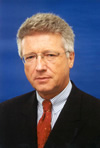



 Sarajevo, October 8, 2015/
Sarajevo, October 8, 2015/  It seems that there’s more trouble on store for state authorities. HSA warns: “We stress that in these two audits, HSA has only audited the process of the holding of negotiations, the activity of the Work Group and the government’s orientation to settle the dispute amicably and not send it to the Parliament of Albania for approval”, implying that the “storm” will continue.
It seems that there’s more trouble on store for state authorities. HSA warns: “We stress that in these two audits, HSA has only audited the process of the holding of negotiations, the activity of the Work Group and the government’s orientation to settle the dispute amicably and not send it to the Parliament of Albania for approval”, implying that the “storm” will continue.

















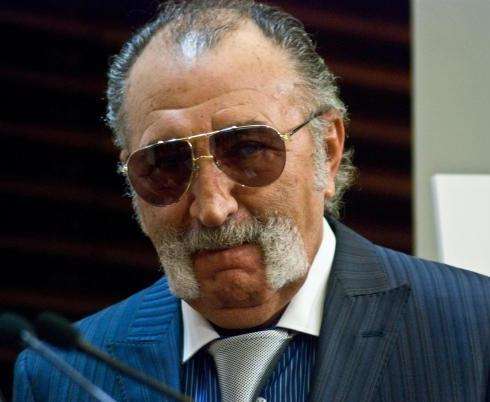





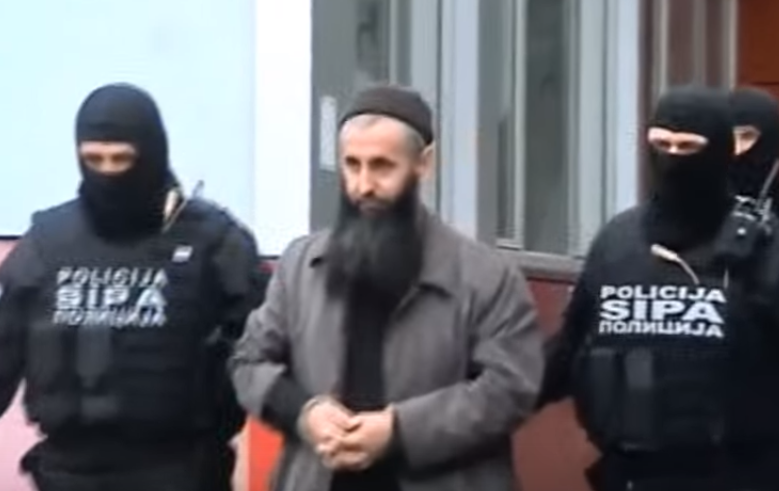








 Bucharest, November 27, 2015/
Bucharest, November 27, 2015/





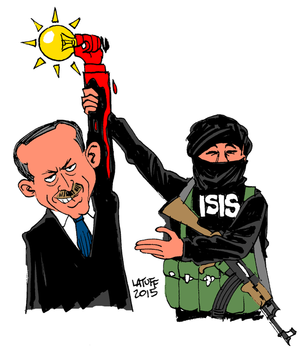








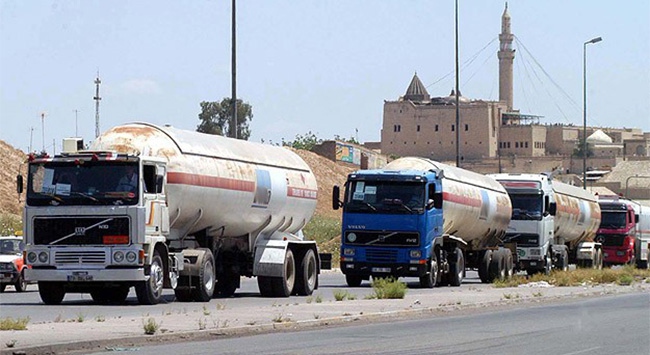






![Türkische Justiz sägt am Stuhl von Erdoğan Türkische Justiz wirft der IHH Verbindungen zu Al-Kaida vor Die Konfrontation zwischen der türkischen Polizei und Justiz auf der einen […]](http://www.politaia.org/wp-content/uploads/2014/01/erdogan-yasin-el-kadi-aile-dostumuzdur-ne-var-bunda_213216549-490x250.jpg)
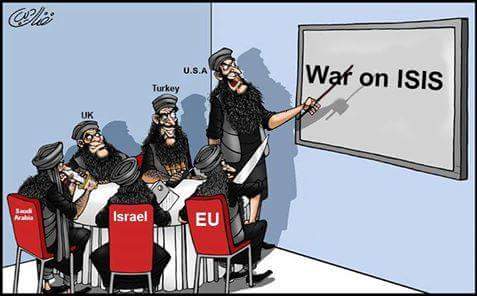



 12 ·
12 · 


